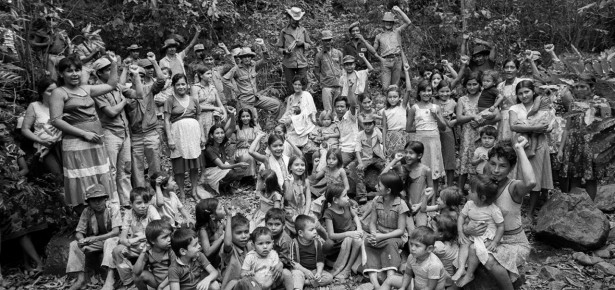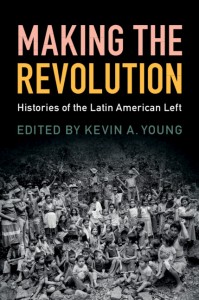
“Will Bolivia and Peru become Indian republics through communist instigation?” So asked a conservative Bolivian newspaper in 1949. Two years prior, large portions of the countryside had witnessed indigenous rebellions against forced labor, land theft, and racism. Although the elite rhetoric blaming “outside agitators” was disingenuous, the rebellions did in fact feature alliances between indigenous and non-indigenous leftists. In the department of La Paz, for instance, anarchist craft workers had actively supported rural Indians in their efforts to form unions and schools. The alliance between these sectors was remarkably horizontal and respectful, and was shaped largely by rural Indians themselves. Although the rebellions were brutally repressed, many of the rebels’ aims would be achieved in the years to come.
As the chapters in Making the Revolution show, this story is not unique. Latin American leftists have often forged diverse coalitions across boundaries of race, ethnicity, gender, and nationality. These coalitions have historically been at the forefront of struggles for democracy and socioeconomic rights.
In Cuba during the Great Depression, communists were the only major political force to reject the xenophobia directed at Black workers from other islands. In midcentury Ecuador, the Communist Party included indigenous organizers from the countryside as well as lighter-skinned urban radicals. In later decades, revolutionary women in Cuba and El Salvador developed a socialist feminism that is starkly at odds with the procapitalist, pro-imperialist variety of feminism often seen in wealthy countries today.
These histories have typically been ignored. Conservative writers accuse the left of slavish subservience to the Soviet Union or of militaristic adventurism that provoked the Latin American right into committing mass slaughter. In this view, the United States was an earnest force for restraint that “promoted moderation over rightist and leftist ideology and violence,” in the words of one recent scholar.
Even among progressive historians, the dominant assumption is that leftists have historically been blind to racial, ethnic, and gender oppression – that is, to anything that doesn’t neatly fit within their rigid class analysis. It is also assumed that leftists were mostly urban, middle-class, light-skinned men.
These progressive critiques are valid in some cases, but they tend to ignore the complexity of left history. If some leftists were sexist or ethnocentric or undemocratic, others embraced an expansive notion of revolution that included the overthrow of capitalism, patriarchy, racism, and other forms of hierarchy. Often it was the most oppressed sectors of society – women, indigenous people, Afro descendants, workers, LGBTQ people – who pioneered these visions of liberation.
Excavating these histories is now more important than ever, and not just in Latin America. Right-wing forces everywhere seek to attract relatively privileged segments of the working class by stoking racism and nationalism. Liberals, meanwhile, try to fend off leftist challenges in part by promoting a fallacious opposition between class politics and race politics. In the 2016 U.S. Democratic Party primary, the social democrat Bernie Sanders was widely accused of being ignorant of racial oppression; his focus on class inequality blinded him to the importance of race, we were told. Although Sanders’s antiracism was far more robust than Hillary Clinton’s, this media narrative had an impact on many primary voters, and was one indirect contributor to the election of Donald Trump.
An interracial, working-class politics is the only thing capable of beating back the reactionary global tide embodied by demagogues like Trump, Bolsonaro, Modi, and Duterte. Building that movement is imperative if we hope to win a just society – or even preserve the habitability of the planet long enough to do so. The history of the Latin American left holds valuable lessons for this struggle.
Kevin Young’s latest book,  Making the Revolution: Histories of the Latin American Left, is available now.
Making the Revolution: Histories of the Latin American Left, is available now.
Latest Comments
Have your say!